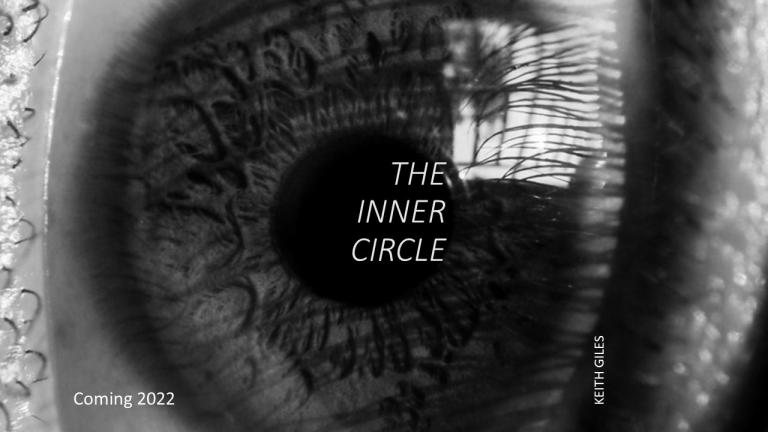
SAYING 17: “Jesus said: I will give you what no eye has seen and what no ear has heard and what no hand has touched and what has not entered into the heart of man.”
The most fascinating thing about this saying of Jesus from the Gospel of Thomas is that it has no correlation to the recorded sayings of Jesus from the other 4 New Testament Gospels, and yet, if you’ve been reading or studying the Bible for very long you’ve no doubt heard this verse before.
What you recall, however, is not anything attributed to Jesus, but instead is quoted in the first epistle of Paul to the Corinthians. Here’s how that verse reads in Paul’s letter:
“But just as it is written: “Things which eye has not seen and ear has not heard, And which have not entered the human heart,
All that God has prepared for those who love Him.” [1 Cor. 2:9]
If you look up the reference mentioned here in an English Study Bible, you’ll no doubt see this listed as being referenced from Isaiah 64:4. But, if you take the next step and actually read what Isaiah 64:4 says, you’ll notice that it has nothing to do with this quote at all.
See for yourself:
“For from days of old they have not heard or perceived by ear,
Nor has the eye seen a God besides You,
Who acts in behalf of one who waits for Him.” [Is. 64:4]
This verse is close to what Paul quotes when he says “…just as it is written,” but it’s not quite the same, is it?
So, what is it that Paul is actually quoting here when he says, “…as it is written”?
Could it be this reference from the Gospel of Thomas which has a much closer reading to what we see quoted in 1 Cor. 2:9?
Some scholars think so. Which, if true, would be a huge paradigm shift for most Evangelical Christians who couldn’t possibly fathom the Apostle Paul quoting from the Gospel of Thomas the same way he would quote from the scroll of Isaiah.
Still, the similarities are stunning. Take a look at both side-by-side and notice the phrases shared between the two verses:
SAYING 17: “Jesus said: I will give you what no eye has seen and what no ear has heard and what no hand has touched and what has not entered into the heart of man.“
But just as it is written: “Things which eye has not seen and ear has not heard, And which have not entered the human heart, All that God has prepared for those who love Him.” [1 Cor. 2:9]
Setting aside the astounding similarities between these two passages, let us consider what Jesus means to communicate to his disciples here.
What can Jesus give to us that no eye has seen, or that no ear has heard? What can we receive from Jesus that no hand has touched? What can we comprehend that has not entered into the heart of any man?
Is it not the realization that we are all one with God? Is it not the reality of how all things are in Christ and Christ is in all things?
This is not something our eyes can see. This is the Truth our ears have yet to hear and which has not, of itself, come into the heart of any one of us, apart from Christ.
Returning to the passage from Paul’s epistle to the Corinthians, we might take note that this entire chapter is an exceptionally “Gnostic” one, in the sense that it speaks of the deeper wisdom of God and the “Mystery” which was “hidden” from us until the Spirit of Christ made it known to us.
Just take a look:
“6 Yet we do speak wisdom among those who are mature; a wisdom, however, not of this age nor of the rulers of this age, who are passing away; 7 but we speak God’s wisdom in a mystery, the hidden wisdom which God predestined before the ages to our glory; 8 the wisdom which none of the rulers of this age has understood; for if they had understood it, they would not have crucified the Lord of glory; 9 but just as it is written:
“Things which eye has not seen and ear has not heard,
And which have not entered the human heart,
All that God has prepared for those who love Him.”
10 For to us God revealed them through the Spirit; for the Spirit searches all things, even the depths of God. 11 For who among people knows the thoughts of a person except the spirit of the person that is in him? So also the thoughts of God no one knows, except the Spirit of God. 12 Now we have not received the spirit of the world, but the Spirit who is from God, so that we may know the things freely given to us by God. 13 We also speak these things, not in words taught by human wisdom, but in those taught by the Spirit, combining spiritual thoughts with spiritual words.
14 But a natural person does not accept the things of the Spirit of God, for they are foolishness to him; and he cannot understand them, because they are spiritually discerned. 15 But the one who is spiritual discerns all things, yet he himself is discerned by no one. 16 For who has known the mind of the Lord, that he will instruct Him? But we have the mind of Christ.” [1 Cor. 2: 6-16]
As we’ve noted earlier, many of the more startling verses from the New Testament that confirm what we learn from the Gospel of Thomas are found in some of the disputed letters of Paul, namely Ephesians and Colossians.
Those two epistles, while most likely not penned by the Apostle Paul himself, were most likely written or compiled from his teachings by his own disciples who wanted to preserve these teachings.
One of those disciples, Theudas, had a disciple of his own named Valentinus, who later wrote another “lost Gospel” – The Gospel of Truth – that was discovered among the same Nag Hammadi documents where the Gospel of Thomas was uncovered.
We know that Theudas was a disciple of Paul because Clement of Alexandria [150-215 AD] confirmed this in his own writings. [See Clement of Alexandria, Stromateis, Book 7, Ch. 17]
He also tells us that Valentinus received the same secret wisdom from Theudas that Paul had taught privately to his own inner circle – something Paul referred to in connection with his visionary encounter with the risen Christ as found in Romans 16:25; 2 Corinthians 12:2–4; and Acts 9:9–10, where he claims to have received the secret teaching from Christ directly.
So, it’s quite likely that Theudas, or one or more of his fellow Pauline disciples, collected the teachings of Paul and created either Ephesians or Colossians – or both – soon after his death.
That’s why this saying from the Gospel of Thomas and the parallel passage in 1 Corinthians 2 is so fascinating. It provides a credible link between these two texts and suggests the strong possibility that what we read in Thomas and what we read in the letters of Paul are not as dissimilar as we may have assumed.
**
If you’d like to find a supportive, thriving community of people who understand the pain of Deconstruction and you’re looking for someone who can walk with you through this process towards Reconstruction, I invite you to join us for Square 1 starting Monday, August 22nd. We still have a few seats available for 75% off HERE>
**
Keith Giles is the author of the hot new bestseller, SOLA MYSTERIUM: Celebrating the Beautiful Uncertainty of Everything, available now on Amazon. Keith is also the host of Second Cup with Keith [a new solo podcast available now on the Ethos Radio App, for Apple and Android and on Spotify.













